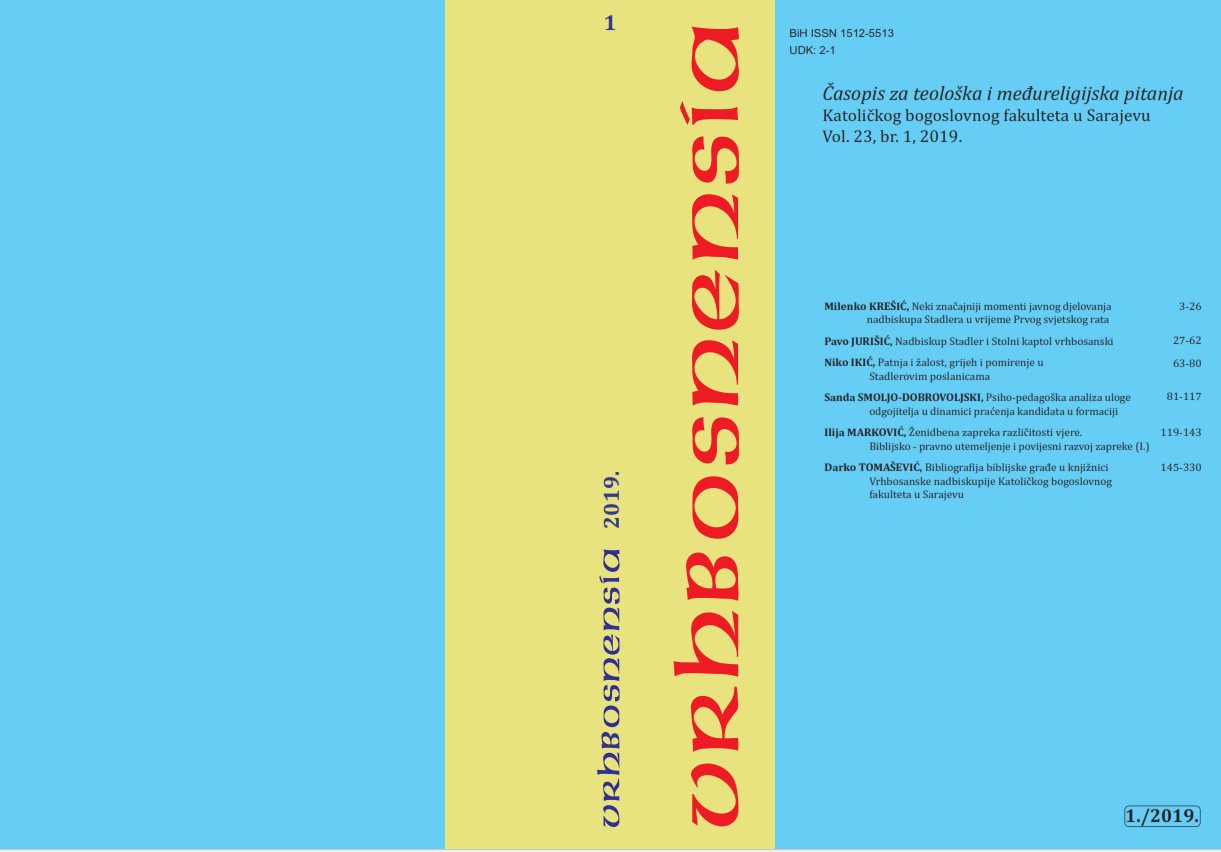PATNJA I ŽALOST, GRIJEH I POMIRENJE U STADLEROVIM POSLANICAMA
SUFFERING AND SADNESS, SIN AND RECONCILIATION IN STADLER’S EPISTLES
Author(s): Niko IkićContributor(s): Pavle Mijović (Translator), Kevin Sullivan (Translator)
Subject(s): Christian Theology and Religion, Existentialism, Biblical studies
Published by: Katolički bogoslovni fakultet
Keywords: Stadler; suffering; sorrow; sin; reconciliation;
Summary/Abstract: Suffering and sorrow, sin and reconciliation are as old as humankind. They are intertwined, and connected with man like oil to a wick. This is why the eternal human questions are: Why does man suffer and how can this suffering be dealt with? The causes of man’s suffering are very complex and, of course, lie to a certain extent with man himself. He is placed on a cross, between his limitation and his aspiration to transcend it, between his own transgressions against the world, against himself, against others, against God, etc. For the theologian, suffering poses a direct question about the meaning of creation and existence. In the Old Testament, suffering is viewed as a consequence of sin, as a personal curse and punishment for sins. New Testament Theology has developed a deeper Christian and ecclesiastical approach to suffering. It looks at man’s suffering as the reflection of Christ’s. Christ has freed man from death forever by His death, and He has left His suffering as a path to salvation. Therefore, the New Testament does not see suffering as a punishment, but as a time of new birth and maturity, as a means of personal salvation and the glorification of God. For man, suffering is the test of his faith, supporting his hope and proving his love. If it is accepted in faith and united with the loving Christ, then it is not sufficient of itself but is consolidated with Christ and the whole Church. Stadler in his theology sees man’s sin as an offense against God through his neighbor and as a threat to the sanctity of the Church. Both suffering and sin have thousands of faces. Theologically, suffering is always seen as man’s free consent to sin, with personal and ecclesial consequences. According to Stadler, the cause of sin lies not in God, nor in Satan, but in man’s will. In this sinful process, he points to the tactic of Satan, who first liberates man from the fear of sin, and afterwards and as a result of this, man is unable to confess.
Journal: Vrhbosnensia
- Issue Year: 2019
- Issue No: 1
- Page Range: 63-80
- Page Count: 18
- Language: Croatian

